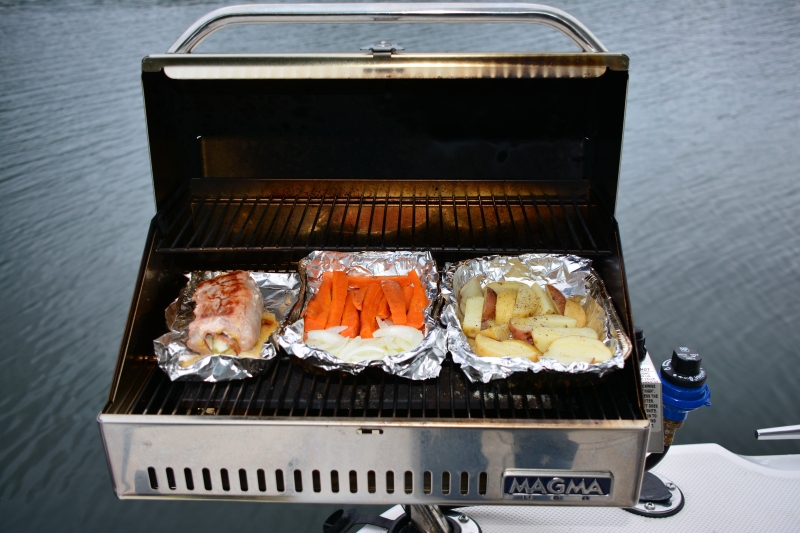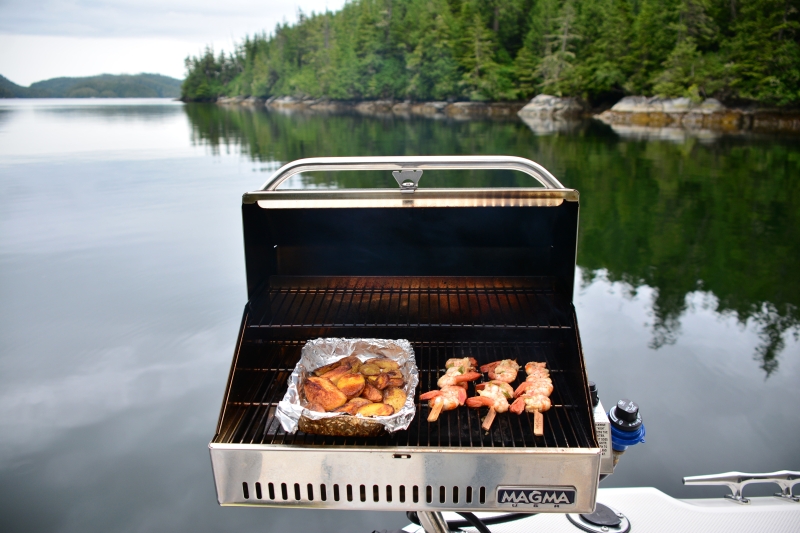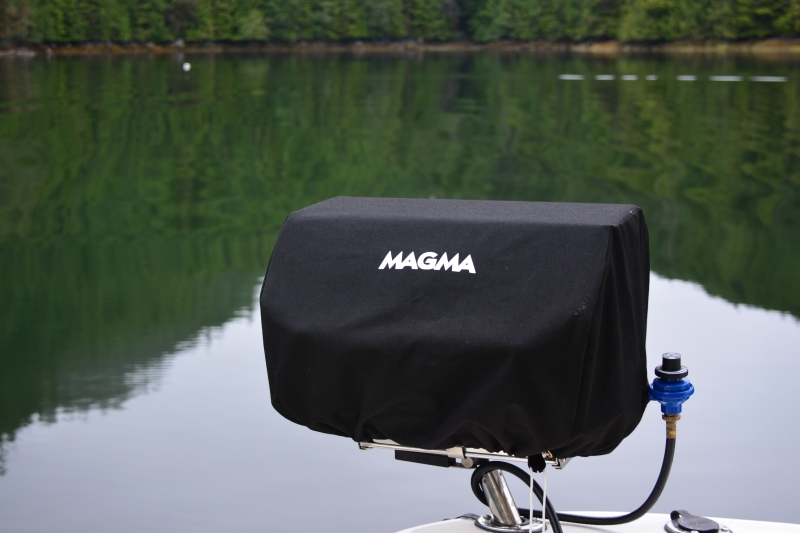Caring for the BBQ
19th September 2023
Nothing beats a BBQ for onboard cooking, but don’t forget cleanup. Barbequing is many boaters’ favorite way to prepare a meal. There is nothing that compares to the flavor of grilled food. Plus, grilling is an effortless way to prepare a meal and keeps the heat and moisture out of the cabin.

For stainless steel parts and surfaces, the most efficient cleaning agent is spray-on barbeque or oven cleaner. Full-strength liquid dishwasher detergent is a close second. Both are caustic and should be applied carefully. Rubber gloves are necessary, as is eye protection. Disassemble the grill as far as possible, which makes cleaning easier and protects those parts—brass, aluminum, or zinc alloys—that should not encounter caustic cleaning agents. Most gas grills come apart quite easily. Vulnerable parts that cannot be removed, especially gas inlet and outlet jets, should be covered with masking tape. If the regulator can’t be removed, cover it with a small plastic bag sealed with masking tape. First, clean out the burner orifices with a pipe cleaner or similar apparatus.
Scrape off loose debris before spraying on the cleaner. Leave it on for 20 or 30 minutes before scrubbing with a non-abrasive pad. Rinse with warm water, being careful not to allow water to flow back into the burner if it’s still attached. Deposits carbonized by heat may have to be sanded or scraped off, but they don’t pose a health threat.

Fire up the grill, allowing the heat to dissipate any remaining moisture before putting it into storage. When lighting a gas grill, always keep the lid open to prevent gas from accumulation which could result in a fire flash. If the burner doesn’t light, turn off the gas and wait several minutes before trying to light again. If the burner goes out while grilling, turn the gas off and wait a few minutes. Open the lid before relighting. When not in use, turn the propane off at the source.
Grilling accidents are rare, but when they occur, it’s usually after the grill has not been used for a while, common with seasonal cruisers. Before using the grill, or after reattaching the grill’s gas supply, take a minute to visually inspect all hose for cracks, loose connections, or blockages. Also check for gas leaks by turning on the gas and swabbing the connections and hoses with soapy water. If you see bubbles, fix the leak before using the grill.
If you smell propane while cooking, turn off the grill and do not reignite until the cause of the smell is determined and repaired. Never check for propane leaks using a match. If a camping propane canister shows signs of excessive rut, gouges, or bulges, switch it out for another. Use caution when storing propane tanks. If you use camping propane canisters, they need to be stored upright in a dry and cool location. Never store spare tanks near the grill.
Storing the grill in a canvas bag, often available as an accessory, will make storage much easier and protect it from damage. It is important to protect the regulator, especially the area around its gas inlet, since it is made from a soft metal that is easily damaged. Partially depleted gas cylinders should be removed from the grill and stored, if not outside, then at least in a well-ventilated place apart from living quarters.

Proper cleaning before decommissioning ensures the grill will work better and last longer, and food will be cooked in a healthy manner. It will also spare you from having to look for that odor.
(Deane Hislop in partnership with Freedom Marine)


